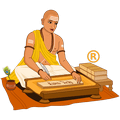























Sunrise05:48
Sunset19:12
Moonrise09:14
Moonset23:59
Shaka Samvat-3267 Virodhakrit
Vikram Samvat-3132 Rudhirodgari
Gujarati Samvat-3133 Dundubhi
Amanta MonthAshadha
Purnimanta MonthAshadha
WeekdayRaviwara
PakshaShukla Paksha
TithiPanchami upto 23:18
NakshatraPurva Phalguni upto 10:32
YogaVariyana upto 12:08
KaranaBava upto 10:09
KaranaBalava upto 23:18
Pravishte/Gate4
Rahu Kalam17:31 to 19:12
Gulikai Kalam15:51 to 17:31
Yamaganda12:30 to 14:10
Abhijit12:03 to 12:57
Dur Muhurtam17:25 to 18:18
Amrit Kalam05:18, May 09 to 07:05, May 09
Varjyam18:35 to 20:22
Notes: All timings are represented in 24-hour notation in local time of New Delhi, India with DST adjustment (if applicable).
Hours which are past midnight are suffixed with next day date. In Panchang day starts and ends with sunrise.



 Mithuna
Mithuna Mrigashira 17:50
Mrigashira 17:50

 Karka
Karka Pushya 25:21+
Pushya 25:21+

 Simha
Simha Magha
Magha

 Simha
Simha Magha 07:30
Magha 07:30

 Simha 17:16
Simha 17:16 P Phalguni 10:32
P Phalguni 10:32

 Kanya
Kanya U Phalguni 13:20
U Phalguni 13:20

 Kanya 28:42+
Kanya 28:42+ Hasta 15:43
Hasta 15:43

 Tula
Tula Chitra 17:32
Chitra 17:32

 Tula
Tula Swati 18:38
Swati 18:38

 Tula 12:58
Tula 12:58 Vishakha 18:59
Vishakha 18:59

 Vrishchika 17:26
Vrishchika 17:26 Jyeshtha 17:26
Jyeshtha 17:26

 Meena
Meena U Bhadrapada 21:56
U Bhadrapada 21:56

 Meena 20:32
Meena 20:32 Revati 20:32
Revati 20:32

 Mesha
Mesha Ashwini 19:47
Ashwini 19:47

 Mesha 25:50+
Mesha 25:50+ Bharani 19:44
Bharani 19:44

 Vrishabha
Vrishabha Krittika 20:23
Krittika 20:23

 Vrishabha
Vrishabha Rohini 21:42
Rohini 21:42

 Mithuna
Mithuna Ardra 25:55+
Ardra 25:55+

 Karka
Karka Pushya
Pushya

 Simha 23:29
Simha 23:29 P Phalguni 16:45
P Phalguni 16:45In Hindu Calendar, the day starts with local sunrise and ends with next day local sunrise. As sunrise time is different for all cities, Hindu Calendar made for one city is not valid for any other city. Hence it is important to use location based Hindu Calendar, like this website. Further, each Hindu day consists of five elements, which are called angas. These five elements are -
In Hindu Calendar, all five elements together are called Panchang. (In Sanskrit: Panchang = Pancha (five) + Ang (part)). Hence Hindu Calendar which shows all five elements for each day is called Panchang. In South India Panchang is known as Panchangam.
When Hindu Calendar includes Muslims, Sikh, Christian, Buddhist and Jain festivals, including national holidays, it is called as Indian Calendar.